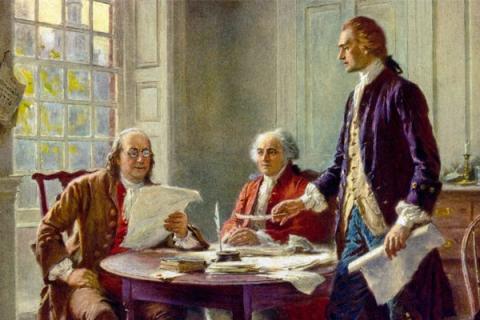Independence Day is a hallmark of the American experience. It is remembered as the day America's founding document, the Declaration of Independence, was signed by the Founding Fathers on July 4, 1776.
As many things prescribed to American antiquity -- including Paul Revere's ride and Betsy Ross sewing the first flag -- that's not completely accurate. The Declaration of Independence was actually signed on August 2, 1776, and the Continental Congress declared independence on July 2, 1776.
Although finer details have been lost in the minutiae of history, what remains is a holiday clad in patriotism -- a celebration of the grand American experiment.
Ripe with cognitive dissonance, the Declaration of Independence is a paradox in and of itself. In the act of throwing off the yolk of British rule, America -- rather, we Americans -- became independently dependent: dependent on one another for our own prosperity, liberty, and happiness.
The 13 colonies became 13 states overnight and eventually were bound to each other under the U.S. Constitution. By uniting these United States under one federal government, the nation became stronger than the sum of its states. This strength would endure through the trials of civil war, racial discrimination, and high-speed Internet.
It may seem as though this strength has waned or even evaporated completely given the state of our civil discourse. Congressional approval reached an astounding 10 percent last month. Yet, if there’s one thing the American experience has taught us, it is that independent thought and collective determination can solve any problem.
So, why should we celebrate Independence Day? In short, it's not a celebration of where we are, but instead, of how far we have come and how far we have yet to go. Don't let this Independence Day pass without remembering what ultimately remains each American's civic duty to each other -- mutual respect. We certainly won't be getting it from the British.
Let us not lose our independence.
Image Credit: Fold3.com
